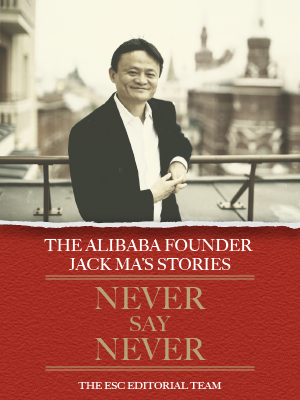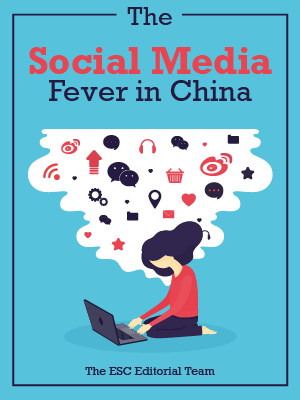Ecommercestrategychina.com uses cookies and other technologies to provide you a better browsing experience. You can get more information regarding the use of cookies, or decline it whenever by clicking Privacy Policy. By using this site or clicking “Okay”, you give us the consent to the use of cookies.
OKAY
The social network in China is always exposed to fierce competition. Duoshan from ByteDance (owner of TikTok), Matong MT and Liaotinbao (formerly known as Bullet Messenger) were launched on January 15, 2019. They all aim at the dominant WeChat, but have so far had no influence. Whether in China or other markets, the social networking market has been captured by tech giants that are hard to beat. However, data security has been plaguing these social empires and might inspire the latecomer to potential future social products.
In this report, we give a brief overview of how blockchain can address the bottlenecks of the social network, and introduce two blockchain applications in this area.
1. Introduction to social networks
A social network is a social software used to connect people online, such as WeChat, Weibo and Facebook. They can be divided into two types according to the functions provided: communication tools and social media platforms. The first essentially addresses people’s needs for communication in their daily lives while the second serves as an online public space where people share and acquire information and play their role in open discussion. Products today are mostly a mixture of both. For example, WeChat enables voice and video messaging as well as sharing posts and links, commenting and liking. At the same time, many have evolved with diversified features to correspond to different scenarios or different forms, such as social communication between acquaintances or strangers or interest-orientated, Q&A-orientated, as well as those for working people. The growth of the market will continue with huge potential.
2. Bottlenecks of the Internet industry
2.1 The profit model from ads is not sustainable
People are using a variety of social products for free on the Internet at the expense of their information being sold. Unfortunately, this is how most social platforms earn their profits. They use data to analyse user behaviour and provide advertisers with insights into the reach of their advertising.
The legal risk is more than just a violation of privacy. The right to be forgotten, which was introduced in 1995 and has since been incorporated into the draft legislation of many European countries, confers individuals the right to request that personal information be removed from the Internet. Severe exposure, stricter regulation and increasing awareness of digital rights will eventually lead to the end of today’s paid advertising patterns on most social networking platforms.
2.2 Data privacy is at risk
Although the development of the Internet has facilitated the production and exchange of information, there is not much it has done regarding the protection of private information, such as certifying the ownership of proprietary data and authenticity of shared information. Data privacy threats that are most relevant to users include the security during the transfer of information (data) and the ownership of information (who owns the business value of information/data).
3. How can blockchain solve the problems?
Cryptocurrencies like Bitcoin are the earliest application of blockchain technology, and relevant investments have garnered a significant amount of hype since 2017. (Learn more about Blockchain Penny Stocks on MintDice) With its decentralised and trustless nature, time stamp, asymmetric cryptography and smart contract, it is considered to bring benefits to other sectors. Let’s take a look at two key types of blockchain applications in the social network.
3.1 blockchain + communication
A decentralised cloud-sharing model leverages a P2P network of computers and distributed storage instead oftraditional clients or central server. In this way, the idle clients can be a server to other nodes and users, thus reducing development costs and streamlining the process as all transactions are validated by members of the network.
3.2 blockchain + social media platforms
The combination of blockchain and social media may work like this: content is converted to hash code by the hash function and time-stamped and uploaded to the blockchain system, certified. In addition, with the blockchain’s incentive mechanism, users receive rewards, namely the platforms’ token, for their participation and production. Some Internet companies have been working on it, such as Renren and Tianya community, both of which have a large user base in China.
4. What are the challenges of blockchain-based social networks?
It is true that the blockchain-based social networks might be disruptive. For startups in this field, however, the primary question is how to take the users from the incumbent titans. Ordinary users hardly understand the profound effects of the underlying technology. Another problem is the lack of a defined subject to take responsibility for censorship, as blockchain is a decentralised platform where users authorise and produce content. Additionally, although encrypted communication ensures an entirely private and secure environment for communication, this may lead to illegal actions that intend to do away with regulation.
All of the above may be barriers for the further development of blockchain–based social networks that emphasise privacy protection, secure storage and the right to digital ownership. It will only be a matter of time before blockchain-powered social networks become a desirable option for the masses seeking a higher level of privacy. DuckDuckGo, an Internet search engine that emphasises privacy of searchers and is avoiding the filter bubble of personalised search results, has reflected this trend: its daily search volume has doubled since 2011 to more than 100,000.
It has become common for social network owners to earn through ad sales, but this has put users at risk because their data is being traded insensibly by them. A decentralised approach can not only ensure better privacy of social networking but also serve as a solution for smart apps and contracts as well as e-commerce and crowdfunding transactions.
Please Login to add comments.

$9.99 $19.98

$9.99 $19.98